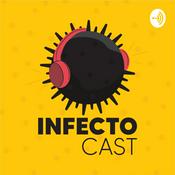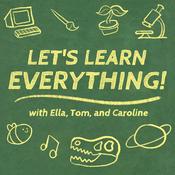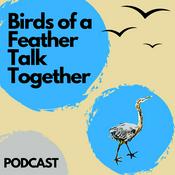615 episódios
- We often think of our planet as an isolated island, solitary and cut off from the cosmic ocean it resides in. But the truth is, Earth is intimately connected with the Universe surrounding it. What’s more, by learning more about the Solar System around us, humanity has changed its own view of the world as well. Dr Dagomar Degroot from Georgetown University spoke to us to explore this idea in more detail.
Learn more about your ad choices. Visit podcastchoices.com/adchoices - For the last several billion years, all life on Earth has progressed according to the rules of evolution by natural selection – a step-by-step process that has given rise to the fascinating complexity and beauty of all the living things we share our planet with. But now, due to advances in our knowledge of genetics and the rise of artificial intelligence, we’re on the brink of being able to design living organisms from scratch. This new field of research is known as generative biology.
In this episode, we’re joined by Adrian Woolfson, a researcher who specialises in synthetic genome design, to talk about his latest book On the Future of Species – Authoring Life by Means of Artificial Biological Intelligence.
He tells us how this fascinating area of research is bringing us closer to a genuine scientific revolution that could change the way we think about how life is created, the vast implications that this may have on human health and the health of our planet, and why we all need to be aware of this powerful new technology and its potential.
Learn more about your ad choices. Visit podcastchoices.com/adchoices - The chances are that if any of us were asked to describe what it feels like to be in love we’d turn to art, poetry or music to help give us the answer. But what does science have to say about this uniquely human experience?
In this episode, we’re joined by Dr Justin Garcia, an evolutionary biologist and sex researcher based at the Kinsey Institute in the US, to talk about his book, The Intimate Animal: The Science of Love, Fidelity and Connection
He tells us how the evolutionary history of human pair bonding led to the development of our feelings of love, how and why we seek certain characteristics in our romantic partners, and how our attitude to relationships has altered due to changes in thinking, culture, and technology.
Learn more about your ad choices. Visit podcastchoices.com/adchoices - Over the past several decades, many technologists and policy makers have sought out huge, disruptive shifts in thinking in almost every area of science, business and commerce in the hope that they’d help to drive innovation forward in giant leaps, one brilliant new idea at a time. But how successful has this been, and should we instead be focusing on a more gradual, incremental approach to innovation that’s based on the steady upgrading of the systems we already have in place?
In this episode, we’re joined by Albert Fox-Cahn, a visiting professor at The Centre of Governance and Human Rights at Pembroke College, Cambridge, to talk about his latest book Move Slow and Upgrade – The Power of Incremental Innovation.
He tells us why we tend to overemphasise the potential impact of the Next Big Thing, how this often leads to a rush to adopt unproven, and at times, unsafe new technologies, and how applying evidence-based thinking and an upgrader’s mindset can help us to be more like the tortoise than the hare, and ultimately win the race.
Learn more about your ad choices. Visit podcastchoices.com/adchoices - If most of us are put on the spot and asked to name acts that we think would define a person as evil, it’s likely our minds would turn to murderers, rapists and war criminals, to name a few. But could it be that this commonly held conception of evil isn’t merely just an oversimplification, but rather a deeply flawed way of viewing the world based on a litany of personal biases, and one that is in dire need of readdressing?
In this episode, we’re joined by Dr Julia Shaw, a broadcaster, best-selling author and psychologist based at University College London to talk about the nature of evil.
She tells us why it’s vital that we accept that, given a certain set of circumstances, we’re all capable of committing terrible acts, explains the key differences between thought and action, and explains why so many of us are fascinated by true crime documentaries and dramas.
Learn more about your ad choices. Visit podcastchoices.com/adchoices
Mais podcasts de Ciência
Podcasts em tendência em Ciência
Sobre Instant Genius
Whether you’re curious about getting healthy, the Big Bang or the science of cooking, find out everything you need to know with Instant Genius. The team behind BBC Science Focus Magazine talk to world-leading experts to bring you a bite-sized masterclass on a new subject each week.
New episodes are released every Monday and Friday and you can subscribe to Instant Genius on Apple Podcasts to access all new episodes ad-free and all old episodes of Instant Genius Extra.
Watch full episodes of Instant Genius on BBC Science Focus Magazine's YouTube channel.
Site de podcastOuça Instant Genius, Biologia em Meia Hora e muitos outros podcasts de todo o mundo com o aplicativo o radio.net
Obtenha o aplicativo gratuito radio.net
- Guardar rádios e podcasts favoritos
- Transmissão via Wi-Fi ou Bluetooth
- Carplay & Android Audo compatìvel
- E ainda mais funções
Obtenha o aplicativo gratuito radio.net
- Guardar rádios e podcasts favoritos
- Transmissão via Wi-Fi ou Bluetooth
- Carplay & Android Audo compatìvel
- E ainda mais funções

Instant Genius
Leia o código,
baixe o aplicativo,
ouça.
baixe o aplicativo,
ouça.






































